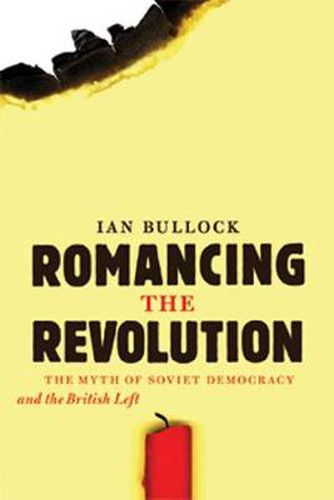Readings Newsletter
Become a Readings Member to make your shopping experience even easier.
Sign in or sign up for free!
You’re not far away from qualifying for FREE standard shipping within Australia
You’ve qualified for FREE standard shipping within Australia
The cart is loading…






In the years immediately following the First World War and the 1917Russian Revolution, many of those on the British Left were tempted, toa greater or lesser degree, by what Ian Bullock calls the myth of soviet democracy: the belief that Russia hadembarked on a brave experiment in a form of popular government moreadvanced even than British parliamentarism. In Romancing theRevolution, Bullock examines the reaction of a broad spectrum ofthe British Left to this idealized concept of soviet democracy. Atconferences and congresses, and above all in the contemporary left-wingpress, debates raged over how best to lay the groundwork for a sovietsystem in Britain, over how soviets should be organized, over thevirtues (if any) of the parliamentary system, over the true meaning ofthe dictatorship of the proletariat, over whether Britishcommunists should affiliate to the Third International, and over a hostof other issues-including the puzzling question of what wasactually going on in Russia. As Bullock demonstrates, even in the faceof mounting evidence that the Bolshevik revolution had producedsomething closer to genuine dictatorship than genuine democracy, manyof those on the Left were slow to abandon the hope that revolutionarytransformations were indeed in store for Britain-that the sovietsystem would at long last allow the country to achieve real socialequality and economic justice.
$9.00 standard shipping within Australia
FREE standard shipping within Australia for orders over $100.00
Express & International shipping calculated at checkout
In the years immediately following the First World War and the 1917Russian Revolution, many of those on the British Left were tempted, toa greater or lesser degree, by what Ian Bullock calls the myth of soviet democracy: the belief that Russia hadembarked on a brave experiment in a form of popular government moreadvanced even than British parliamentarism. In Romancing theRevolution, Bullock examines the reaction of a broad spectrum ofthe British Left to this idealized concept of soviet democracy. Atconferences and congresses, and above all in the contemporary left-wingpress, debates raged over how best to lay the groundwork for a sovietsystem in Britain, over how soviets should be organized, over thevirtues (if any) of the parliamentary system, over the true meaning ofthe dictatorship of the proletariat, over whether Britishcommunists should affiliate to the Third International, and over a hostof other issues-including the puzzling question of what wasactually going on in Russia. As Bullock demonstrates, even in the faceof mounting evidence that the Bolshevik revolution had producedsomething closer to genuine dictatorship than genuine democracy, manyof those on the Left were slow to abandon the hope that revolutionarytransformations were indeed in store for Britain-that the sovietsystem would at long last allow the country to achieve real socialequality and economic justice.